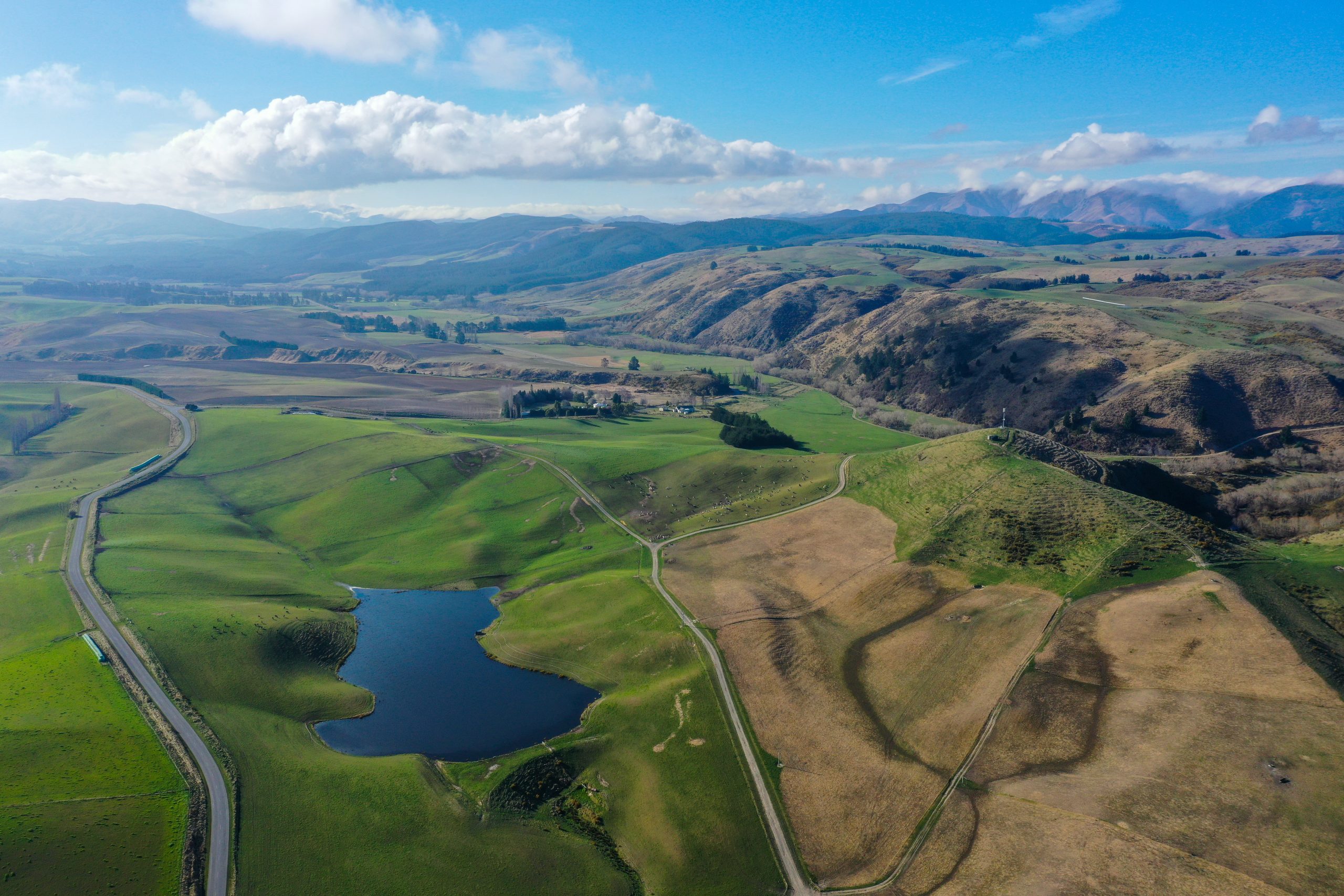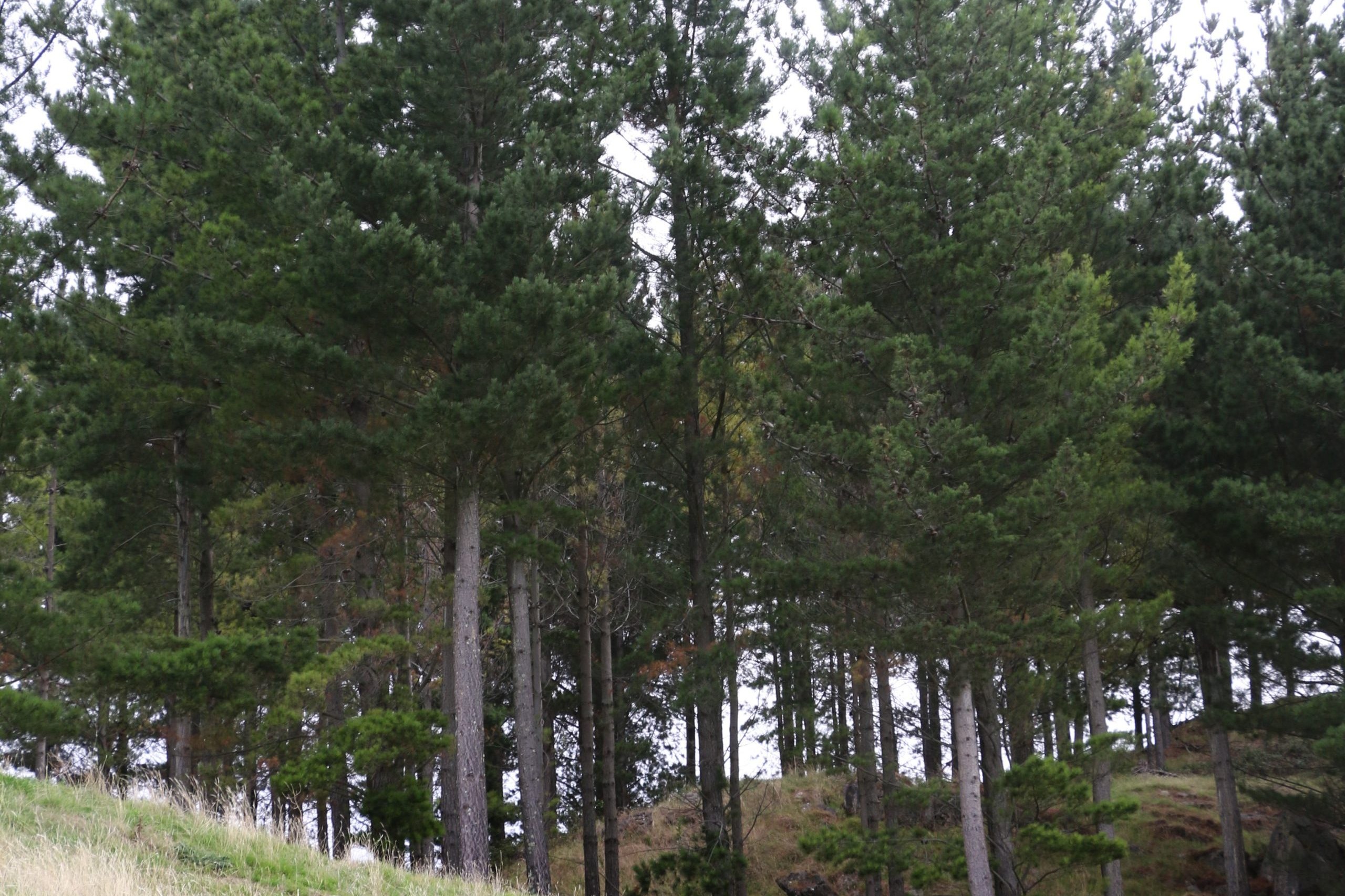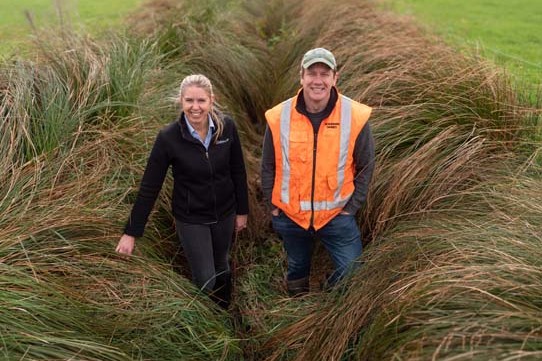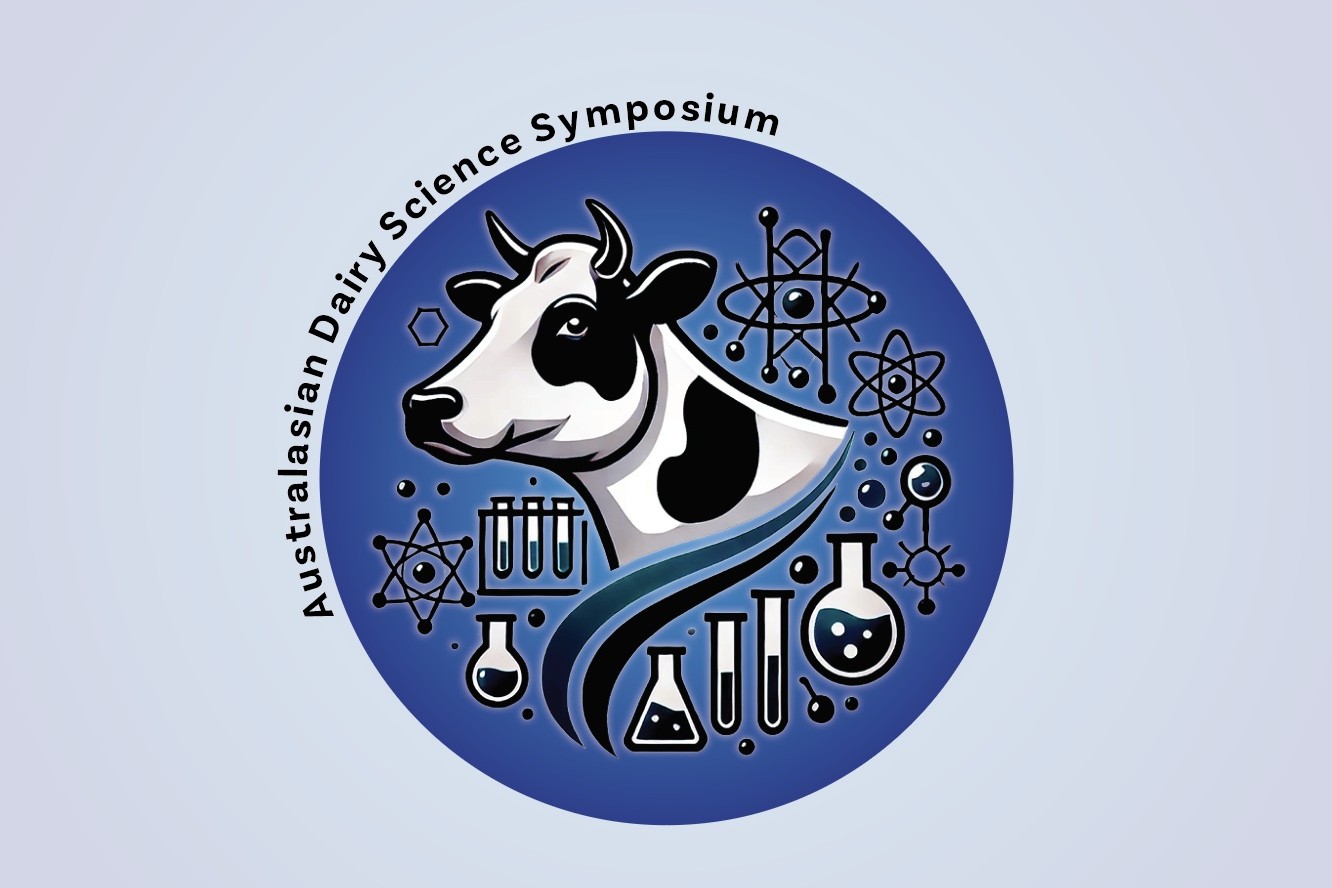Sustainability: thinking, sharing, and acting
Kaipara dairy farmer Earle Wright is a newly-minted DairyNZ Climate Change ambassador, a role that to him is a recognition of his whakapapa, his actions making change to environmental matters, and his credibility locally as a farmer making a difference to the whenua. Chris Neill reports.
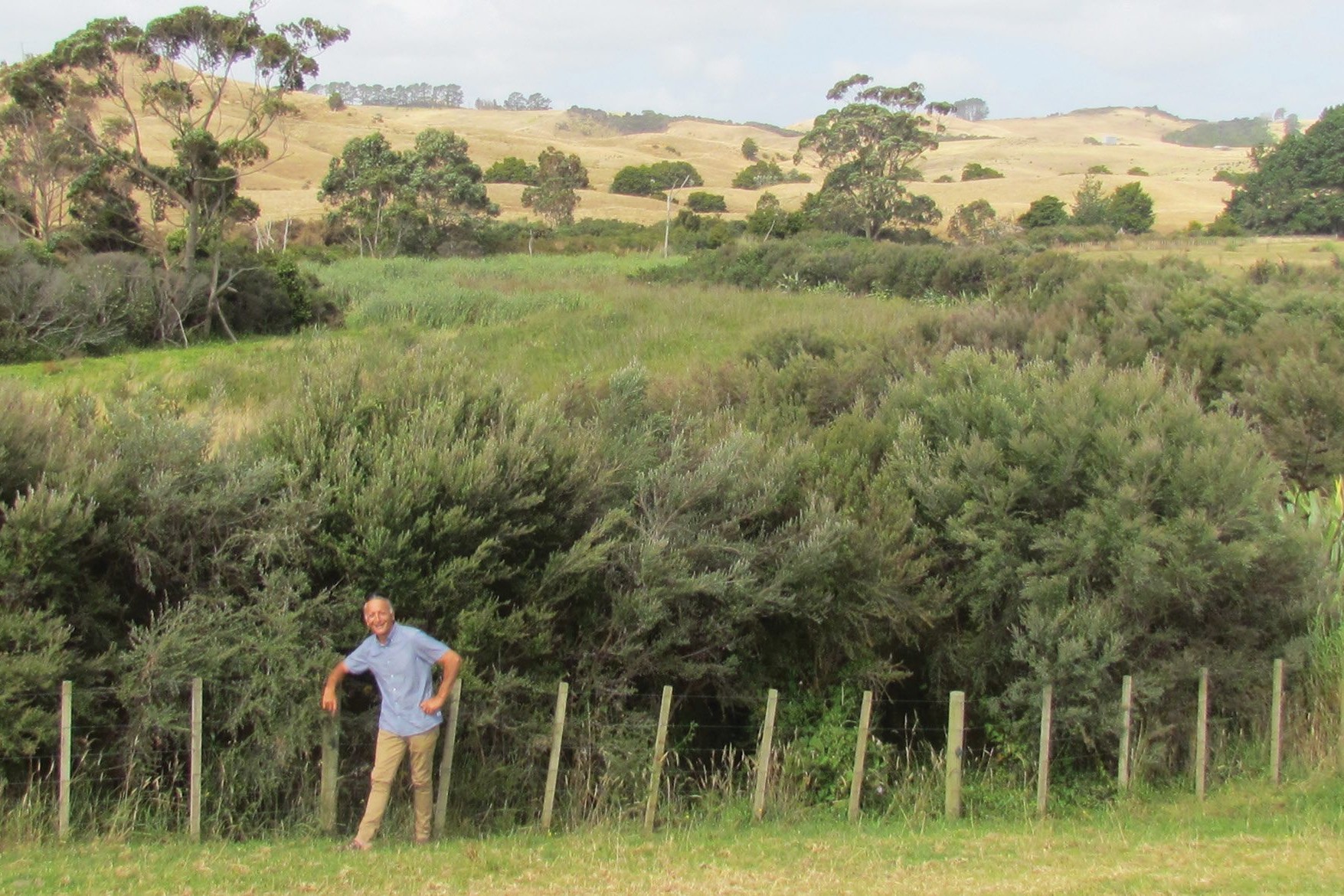
Earle Wright is a second-generation dairy farmer on what was a Lands Settlement Scheme ballot farm at Tapora on the edge of the Kaipara Harbour. He took it on because his brothers chose to follow other careers. Being of Ngati Whatua and Ngati Porou descent, Earle is a passionate conservation-minded farmer intent on reintroducing native flora and fauna for stronger biodiversity and harbour protection. His whakapapa takes him back to the waka Mahuhu ke te Rangi, which came from Hawaiki to land at Taporapora. The small island Manukapua (‘bird cloud’) off Tapora, which is significant to where the waka landed, is of great importance to Earle and he’s committed to its restoration.
With his wife Gaeline they milk 300 cows on a 120ha platform, with a 61ha runoff and substantial areas of conservation planting. The 100,000ha Okahukura Peninsula is a challenging place to farm and subject to the extremes of Northland’s climate. Because of its proximity to Auckland, this district, which was previously remote, is undergoing significant land use change. Avocado trees are taking over dairy pasture, with consequential increases in demand for people and water resources.
Earle’s roles as an Integrated Kaipara Harbour Management Group (IKHMG) flagship farmer, a member of the Dairy Environment Leaders Forum, chairman of Tapora Land and Coastal Care Group and respected dairy farmer, readily identified him as a candidate for a DairyNZ Climate Change Ambassador. DairyNZ sees the role as “an important part of helping dairy farmers and our farming communities understand how they can make environmental improvements on their farms”.
IKHMG and now the substantial Kaipara Moana Remediation programme are intent on improving water quality in the harbour, which aligns with Earle’s personal values and vision.
A key element of achieving their outcomes is farmer participation in sediment reduction through stock management, erosion control, and riparian planting. The primary focus is on reducing the 700,000 tonnes of sediment entering the Kaipara annually, which is compromising water quality and marine life. Personal success for Earle is finding whitebait returning to the streams on his farm, and returning gorse-infested land to a wetland with thriving native plants that have been established by students from the neighbouring Tapora School.
The Climate Change Ambassador role adds another dimension to Earle’s interests. He expects that applying and encouraging farming practices that ultimately reduce methane emissions and sequester carbon will contribute to the local, national, and global effort to address climate change. Knowledgeable farmers acting locally with intent to enhance the environment will accumulate to achieve substantive change. “It’s not something that can be done alone, it requires a collective effort to make a difference.”
More research is required to develop farming systems that farmers can adopt to operate profitable businesses that are environmentally sustainable. As an ambassador, Earle expects to lead by adopting new systems and encouraging other farmers to follow.
Earle has a 30-year vision for the change he wants to be part of, which he breaks into three words:
Thought – where every farmer’s subconscious applies an expectation of high environmental standards to all their planning, recognising environmental sustainability is critical for their business and to them personally.
Word – farmers share their expectations and achievement with each other to encourage and promote adoption of land use and farming systems that are environmentally sustainable.
Deed – our farming practices are recognised by consumers as meeting their high expectations of sustaining the environment while delivering a nutritious and desirable product.
These elements are part of Earle’s deep cultural and personal values. He believes that individual producers must understand the world’s expectations of them, prepare themselves and their business, and then respond by delivering what markets, processors and regulators need. He connects with farmers who “want to do the right thing” and contribute to the change. However, there is frustration with being blamed for their animals’ methane outputs but not having specific models to adopt or tools to use that reduce both carbon and methane emissions.
Earle is also concerned that continuing current practices is creating a long-term detrimental effect on the land. He is keen to see farmers identify and adopt solutions to achieve the changes that are needed, rather than being required to meet regulatory control. He sees the inclusion of Māori as an important element in this process. It is likely that local Maori will have a role in the granting of future resource consents and suggests it would be prudent to have solutions that align with their values and expectations.
Sharing these views with the Extension Southern Northland Dairy Cluster encouraged these farmers to reflect on their own circumstances.
All of the group farm within the Kaipara catchment and recognise the need to improve Kaipara Moana and be part of addressing climate change issues.
Earle addressed the question of recognising farmer contribution, noting there is a common expectation that farmers will contribute fencing and planting to remediation work. This comes on top of providing the land that is contained in the conservation area and controlling pests and weeds that thrive in areas not grazed.
Earle is also recognised for his enthusiasm and willingness to encourage other landowners to engage in thinking, sharing, and acting in ways that contribute to environmental sustainability.
While Earle has a long-term view of the changes required, he understands the urgency to act now and continues to promote the need and activities to improve the health of our environment.


